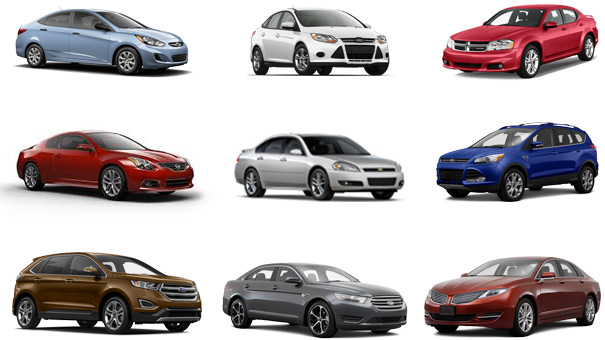
Most U.S. car rental agreements do not allow you to drive the car across international borders. Additionally, your U.S. car insurance rarely covers international car rentals, so you will likely want to purchase insurance from the rental company at the time of rental.
Credit card companies may help here, as most do offer coverage in many international destinations.
Outside the U.S., policies on border crossing vary by destination and car rental agency. In some cases driving into another country is permitted if you give advance notice and/or pay an extra fee.
If you can, pick up your rental downtown instead of at the airport.
This isn’t a hard-and-fast rule, but in general, rental rates at airports are more expensive than rates a little bit further away. Try looking for rates from pick-up spots closer to your hotel, or even in the city center.
Make sure to always compare those to rates from airport agencies, though – sometimes, the price difference will be negligible, or the airport might even be cheaper. Also remember that you’ll need to arrange transportation to the rental agency, whether you can take a hotel shuttle, or you have to pay for mass transit or a taxi into the city. Extra info on rent a 9 seater
Get the Right Card
Bringing me to my next point – credit cards with primary rental insurance. The Chase Sapphire Reserve is my favorite travel credit card for many reasons, but the primary rental insurance is one of its best perks (including Priority Pass membership). When you put your rental car on your Chase Sapphire Reserve card you get primary coverage around the world up to $75,000. That works out great for us since we are nomadic and don’t have a car or home.
Use an online deal aggregator and compare prices.
Sites like CarRentals.com, Priceline and Kayak.com give you the opportunity to compare prices from many different rental car companies at once, which is always something you should do before booking a car. Don’t overlook off-brand rental agencies like Fox Rent A Car, which may not be available in every area, but tend to offer anywhere from a 10 to 50 percent discount off what you would pay with a more well-known rental car agency. More info on rent a car in Bangkok
When you book your rental car, the deal will come with a specific fuel policy. For example, the most common is ‘Full to Full’, which means you refill the tank before you take the car back. Another is ‘Full to Empty’, which means you pay for a tank of fuel at the counter and can return your car as empty as you like.
When you arrive to pick up your car, the rental counter staff may offer you a different fuel policy. If you’re booking your car on the spot, you’ll be offered different fuel policies to choose from.
Tips for avoiding fuel policy trickery
Fuel policies each have their pros and cons, but in general, Full to Full is a fair policy. So if you have that, there may not be any benefit to changing it.
If you booked online, check your car’s fuel policy before you get to the counter. That way you’ll be confident whether or not it’s right for you.